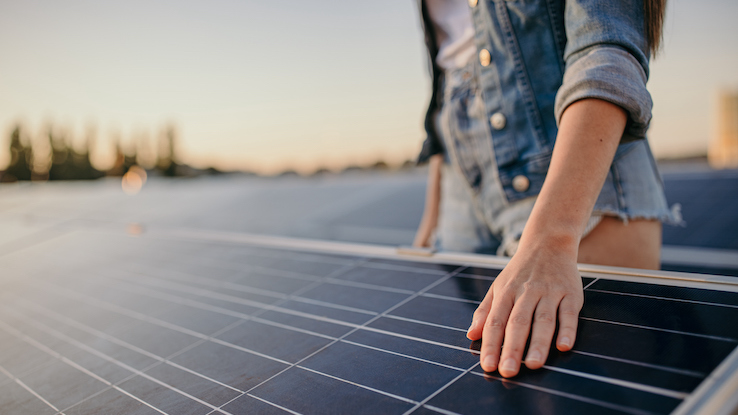
Looking to take the plunge and install home solar panels at your residence? Look no further than this comprehensive guide! Here, we’ll explain everything you need to know about solar panels, from their basics to installation tips and advice. With everything you need to know in one spot, getting solar panels installed becomes an easier process to navigate. Take a look through this guide to get started in better understanding the role solar panels could play in your home energy usage.
What Are Home Solar Panels, and How Do They Work?
Home solar panels work by converting sunlight into electricity. Solar panels are made up of several different parts, and each part plays a specific role in the panel’s overall function. Sunlight is absorbed into special photovoltaic cells lining the panels, and these cells retain an electric charge from the sun’s energy. The panels then transform this charge into electrical energy that’s stored in batteries until your home needs the energy to run various appliances.
The benefits of home solar panels are many and varied. For one, they’re a great way to reduce your energy bills. Because home solar panels convert sunlight into electricity that powers your home, they can help you save on your monthly electricity bill by preventing you from needing to use as much electricity supplied by your power company. Additionally, home solar panels help protect the environment. They generate very few emissions, meaning that they have less of an impact on the environment. Additionally, home solar panels are versatile — you can use them to power anything from lamps to appliances inside your home.
Choose the Right Size Solar Panel System
When you’re looking to install solar panels on your property, it’s important to choose the right size system. There’s a variety of sizes available, so you can find the one that best suits your needs and your home’s energy needs. Here are some tips to help you choose the right system:
Take a look into data like your daily wattage usage and your monthly electricity bills when you’re doing your solar panel system research. This will help you identify which size solar panel system is right for you.
Think about your location. Solar panels are typically more powerful in sunny locations, so make sure to consider where you plan to put your panels before making a purchase decision.
Finally, be mindful of your budget. Don’t overspend just because you think you need a bigger system – you might end up paying more in the long run for a system that isn’t any more effective than a smaller system.
By following these tips, you can choose the best size solar panel system for your home and maximize your installation savings.
Solar Panel Maintenance and Troubleshooting
Keeping your solar panels in optimal condition is important for prolonging their lifespan. Here are a few tips to help you keep your panels clean and functioning:
- Regularly clean your solar panels. Always follow manufacturer instructions for cleaning, or have the panels professionally cleaned.
- Inspect your panels for damages, such as missing or bent parts, and replace them if necessary. This is particularly important to perform after storms or inclement weather.
- If you notice any strange noises coming from your solar panels, get in touch with a skilled technician immediately.
- If your solar panel produces less energy than it used to, it may be time to have maintenance performed.
If you’re interested in installing home solar panels, this guide has everything you need to know to make the process easy and affordable. Keep these tips in mind as you start doing more research about home solar panels.
This text was generated using a large language model, and select text has been reviewed and moderated for purposes such as readability.






